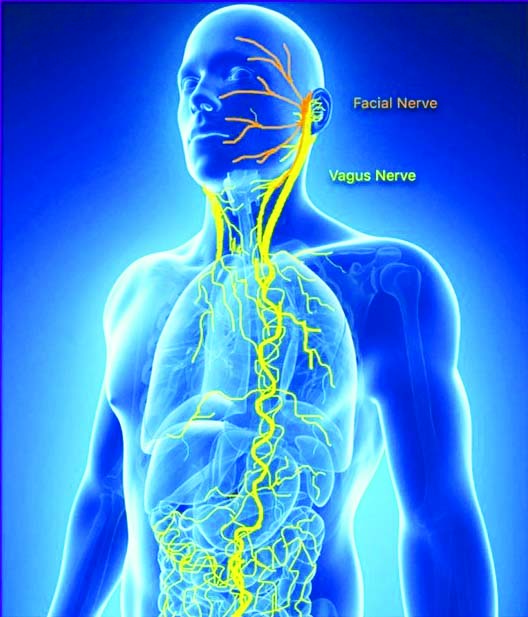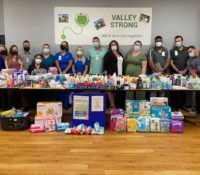By Ken Wells, MDiv, MA, LPC, CSAT, LSAC
One of the great fears that exists in relationship life is that of abandonment. It is scary to become emotionally naked to someone. Many people never achieve deep vulnerability to their partner or anyone else for that matter. There is an underlying fear that if you know what I know about me you will run away from me.
This fear is often disguised when people say I don’t want to tell this truth because it will hurt the person I love. It can be true but underneath the stated qualm is the distress that if you expose the truth about yourself, you will be abandoned.
The fear of abandonment is kindling for most codependent acts in relationships.
Codependency is a gnarly description in relationship life when people try to control another’s behavior in ways that are extreme. Everyone wants to be loved and accepted. Yet, when people go to the extreme of lying, manipulating with niceties, tolerating abuse, losing their identity, or ignoring painful experience because they desperately want to be accepted or loved — it is hurtful. This behavior is identified as codependent. Codependent behavior is always motivated by traumatic experience both present and past. When someone offends you, it is common to hesitate or judge your response based on past experience of being hurt by others. Putting up with the intolerable is endured because of the fear of losing something or someone you don’t want to live without.
Both addicts and partners participate in the trauma response of codependency. It varies in degrees of expression. While it is suspect to put everybody in any one category, typically both parties fear abandonment. Extreme is defined in a myriad of behavioral responses. Ultimately, people act in certain ways to protect themselves from the hurt of abandonment. When you scare your partner with betrayal behavior, the cascading emotions triggered by betrayal is immense. Obsessional thoughts triggered by treasonous actions is common. So is trying to control what you cannot, to the extreme. The pain of deceit is so deep that compulsive codependency takes over to avoid further trauma. Many respond with codependent response at the onset of betrayal while for others historical codependent response from past trauma is magnified by present betrayal trauma.
Addicts avoid telling the truth from a fear of abandonment. Pressed with the crisis of telling the truth or losing a relationship, an addict is forced to do disclosure. Some tell the truth because they are serious about ending their destructive addictive behavior. Others piecemeal the truth, mistakenly thinking that if I just tell enough my partner will be satisfied and I won’t have to face the fear of abandonment.
After disclosure, many addicts avoid sharing their emotional truth about how they experience their betrayed partner triggered by shame about their addictive behavior and from a fear of abandonment.
However, if there is not a process that moves a relationship to sharing emotional truth, codependency motivated to avoid abandonment will lead to the realization of what both fear the most—a relationship break up. Codependency is accelerated when a couple does not tell each other what they feel or think because of a fear that if the other knows it will crush them. When a couple concludes that it is their responsibility to protect the other from truth that is deemed hurtful, they create the reality of what they fear most–desertion. In fear of abandonment, a couple can either tolerate unbelievable loneliness and emotional pain, or divorce. Either way it is possible to never address the fear of abandonment.
For codependent behavior to stop, the fear of abandonment must be faced. Here are some considerations:
When you fear saying it straight, you must face the greatest fear you want to avoid. If the greatest fear is you will be embarrassed with your lack of knowledge, face that first. If your ultimate fear is that if I say to my partner what I really believe, h/she will leave me, you must face that first. If your greatest fear is your real truth is that you do not have the physical or emotional strength to achieve what is required, then you must face that first. Go to the place you fear the most and practice letting go of what you cannot control—then return to the here and now moment. You likely won’t be facing your greatest fear in the present. But, inside you react as if you will. You must uncover your greatest fear as if it is present in the now moment of your life. When you do this, you will be able to address your present moment fear of abandonment. This requires engaging the letting go and surrendering process of Step 3 of 12-step recovery. Admit that you cannot control or prevent your partner from walking away. You will need help but facing this reality is first toward overcoming codependency around abandonment. It is also true about fear in other aspects of life.
Face the fear of failure and know that you will survive on the other side. When you do, you will be able to manage the anxiety of the present moment.
When you are stuck and paralyzed with fear of abandonment in a relationship, you will need to address past unresolved traumas. Most people don’t want to do this. I hear “I don’t have any past traumas in my childhood or life.” Sometimes people say, “I don’t want to live in the past” or “I let that go a long time ago.” Yet, the fact you are reacting to your partner on a level of intensity of 9 or 10 (on a scale of 1-10), this issue would normally be a 3 to 4, tells you that you need to stop and figure out where the over reaction is coming from and address it. Addressing it means going back to the point of pain and scrubbing the wound. It might be a present wound that must be addressed, or a childhood wound that has been left unaddressed. Essentially, you need to grieve the loss and the pain. You will feel worse before you feel better. When there is a medical intervention, it is common to feel worse before you feel better. Simply acknowledging, reading, or talking about the loss won’t be enough. You will need to give back pain and feel the hurt of whatever occurred that paralyzes you with fear. PCS, The Meadows, Hoffman Institute, Onsite and a host of others specialize in this important grief work.
Be your own best friend. The feeling of abandonment is a lonely, scary feeling. The reason many people don’t stand for principle is that it feels so lonely to do so. In a moment of aspiration many say, “I don’t care what anyone says or does, I will do what in my heart is right.” But, when the moment comes to stand for principle, it is lonely and scary. Yet, life has a way of bringing us all to that moment of recognition. In that moment when you need to stand for principle while facing abandonment, you must be your own best friend. Others can be supportive. But no one else can be there with you in that moment of truth. So, be gentle with yourself and bathe yourself in the predetermined affirmations that breathe life and inspiration into your moment of fear. You can do this. Pause and breathe deeply and know that when others abandon you, you will never abandon yourself again! Once you do this, then you can rely upon others to remind you of your personal commitment to yourself and hold you accountable with love and support.
For more insights about the importance of embracing every day experiences in recovery from Ken’s book “Dare to Be Average- Finding Brilliance in the Commonplace” published by Daily House Publishing and currently on sale through Amazon.com.
For information on PCS, visit www.pcsintensive.com


































